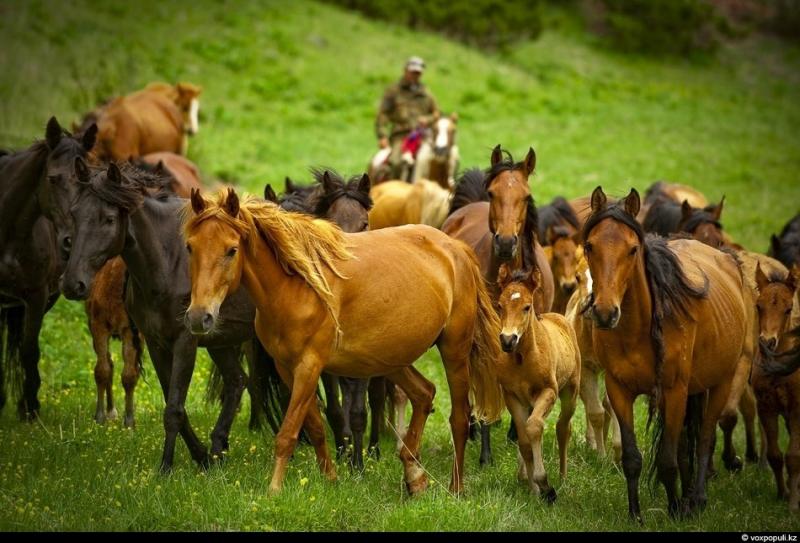
Is it true that horse breeding is hardly supported by the state, but horse breeders themselves have a lot of money? If someone knows the answers to these questions, it would be Murat Nurushev, President of the Union of Horse Breeders, Honorary Professor of Agriculture of Kazakhstan and Russia, the author of a vast amount of scientific literature on horse breeding. World of NAN talked to him about the current state of affairs in horse breeding.
Murat Zhusypbekovich, how do you assess the current state of horse breeding in Kazakhstan?
I would say that the industry has seen positive changes. As a person who has devoted 40 years to this business, I will explain in numbers. At the beginning of 2020, the leading horse breeders in the world were the United States with 10.7 million horses. Mexico and Brazil followed. Kazakhstan was inferior to Mongolia, China, which has 3 million 671 thousand heads. But this year, 2021, in Kazakhstan, the number of horses reached 3 million 118.2 thousand heads, against 2 million 852.2 thousand in 2020. Thus, growth for the year was 9.3%. Among the regions, East-Kazakhstan region is the leader in terms of livestock - 426.3 thousand heads. It is also in first place by volume of production - 25.6 tons of horse meat. In total, 873.6 thousand foals were obtained in Kazakhstan in 2020. Average yield of young horses was 65 heads per 100 mares. These are all indicators that our farmers, over the past 20 years, have achieved positive success in the development of horse breeding. Although there are some unwarranted losses from this year's drought "jute" summer.
There is a lot of interest in horse breeding right now. Why do you think this is?
The interest in herd horse breeding is due to the fact that this type of livestock breeding does not require much cost or initial capital, provided there is plenty of pasture. This ensures the lowest cost of production.
At first sight one gets the impression that there are no big problems in the industry, except for pastures. And what really hinders the development of horse breeding now, if there are such factors?
The problems have not left our industry unscathed. For example, at the moment the base of pedigree horse breeding in the country is represented by 118 agricultural establishments, including 18 stud farms and about 100 breeding reproducers, breeding 14 breeds of horses of native and foreign selection. Unfortunately, however, there is no single center coordinating the work of horse breeding in the country. The Ministry of Agriculture does not have a staff dedicated to this branch of livestock breeding. There are no faculties in higher education institutions to train horse breeding specialists, although there used to be such a specialization. All these factors threaten the safety of unique Kazakh breeds created by years of hard work of several generations of horse breeders. That is why we made it a priority of the Union of Horse Breeders to eliminate threats to unique native breeds of horses and coordinate horse breeding and equestrian sport on a systematic basis. One more pain of Kazakh horse breeders is absence of state pedigree books for all breeds except Kostanay. The owners of horses have to go to the Czech Republic and Russia (All-Russian Research Institute of Horse Breeding) for a lot of money to confirm their pedigree and enter the international arena. In this connection, we are still unsuccessfully trying to solve the question of opening a certification center for breeding horses in our republic.
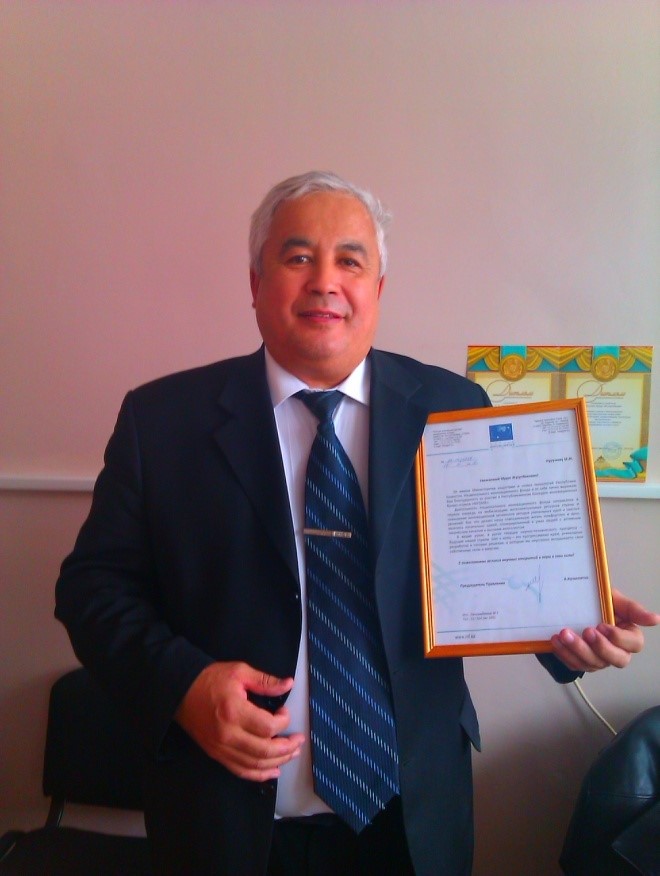 Murat Zhusypbekovich, what else is of concern to you as a man who has devoted 40 years to studying horse breeding?
Murat Zhusypbekovich, what else is of concern to you as a man who has devoted 40 years to studying horse breeding?
By the end of the nineties the vast majority of all horses - more than 80% were concentrated on private farms. Where there were only three, five or one head in a household, breeding was impossible. Therefore, scientific developments, breeding and genealogical schemes have practically disappeared. Today, specialists are raising the alarm about this, suggesting to the government and local akimats to organize at least some breeding work in the field of traditional breeds. However, the owners themselves do not understand the problem. Meanwhile, the quality of the gene pool is falling. Sadly, not a single agricultural high school in the country, not to mention colleges, teach a specialty "Horse breeding". There is a big problem with literature on the industry. My colleagues and my personal books are plentiful. But they are all published by the authors themselves with a small circulation. With the exception of KazNAU, none of the agricultural universities have purchased and use these textbooks, due to lack of interest and competence in the industry. I wish the scientific work would reach the farmers, because learning the basics of herd horse breeding would have a significant impact on the quality of the producing stock, would reduce the loss of livestock due to lack of knowledge. This is a question for profile departments.
Is the horse breeding industry subsidized enough in the country?
At present, only breeding animals of the pedigree-producing stock, mostly breeding stallions-producers, are supported by subsidies. And this is the most minuscule part of the total number of horses. In value terms the amount of subsidies for the development of horse breeding is ten times less than it is provided in pig, poultry and cattle breeding. This should not be the case. According to the results of our analysis, the farmers breeding horses face many problems which they have to solve without state support, such as expensive feed, supplements and vitamins. Significant financial investments are required for electricity, transportation, fuel and lubricants, and animal welfare. Some do not have enough pastures, plots for sowing fodder. There are no qualified specialists - zootechnicians, veterinarians. All these issues require a systematic solution. Unfortunately, horse breeding is deprived of help from the state, while many horse breeders have a sense of patriotism in the development of traditional industry, self-consciousness of the need to continue the Kazakh traditions, rituals and national equestrian games.
In your opinion, in what direction should horse breeders work to build a profitable business?
Dairy horse breeding is especially profitable now. There are at least three ways it could develop. They are making koumiss, using it as a substitute of woman's milk, and using it in perfumery industry to produce creams, ointments, tonics and rejuvenating serums, which are in great demand in Europe and America today. The peculiarity of horse meat and koumiss is the effect of rejuvenation - polyunsaturated fatty acids contained in these products when entering the gastrointestinal tract bind and remove toxins and chemical compounds harmful to the body. Everyone knows about the profitability of meat horse breeding. For the last 10 years, average meat prices grew more than twofold, reaching 2,500-2,800 tenge per kg this year. One liter of koumiss retailed at 1000-1200 tenge. Looking at price dynamics, we can say that increase in prices on horsemeat and koumiss is observed from year to year, as well as on horses themselves. All this contributes to stable positive dynamics in the development of the industry and on farmers' profitability.
What breeding achievements of our horse breeders can you tell us about? I don't think the general public knows about them.
In fact, there is a lot to be proud of. Three new breeds of horses have been bred in Kazakhstan. They are Kustanay horse-racing (1951) and two meat-dairy breeds - Kushumskaya (1976) and Mugalzharskaya (1999). At the very beginning breeders have set an aim to breed new breeds which would possess the same undemanding nature, strong health and adaptability to any climatic conditions as Kazakh horse like a zhabe, but which would have more body weight. That is how the above-mentioned breeds appeared. Besides, time has shown that local breeds are resistant to many diseases which cause serious damage to horses of factory breeds imported into Kazakhstan. That's why we can't tire of repeating that we should intensively use genetic potential of high-productive stallions of Kazakh breeds Zhabe, Mugalzhar and Kushum to improve breeding and productive qualities of local herd horses.
How big is the country's export potential in this branch? And do we need any export markets at all?
The export potential of horse breeding is developing like never before. We should certainly increase it. The potential volume of export of horse meat in the country can make up more than 3,5-4,0 thousand tons a year. At the same time, domestic demand for horse meat is 100%, so our farmers have every opportunity to meet export demand, even for such a big market as China. Now people in many countries and continents have realized the benefits of horsemeat, koumiss, creams and ointments from the milk of mares for the body. Their great importance in terms of longevity. And such countries as Japan, Singapore and China are ready to pay large sums to purchase our ecologically pure product. And we must take advantage of this, supplementing the foreign exchange capital of the country from the export of goods with high surplus value.
What tasks are currently set by the Union of Horse Breeders?
We drew up a long-term plan for the development of horse-breeding up to 2050, where Kazakhstan should reach the level of breeding 10.750 million heads of horses and come in first place, ahead of the United States and Mexico. A concrete plan of action has been drawn up. We have all opportunities to increase the number of horses by 3.5-4 times, and we will increase production of horse meat and koumiss, and its export to other countries, not decrease. We have high hopes in realization of this development plan on Atameken NCE. They are well aware of the need to continue the national cause of our ancestors. Already submitted for consideration the documents for entry into the National Chamber with the right to vote, we are waiting for the result. If the Union of Horse Breeders is supported by the Ministry of Agriculture and Atameken, we are ready to develop the industry.






































 Murat Zhusypbekovich, what else is of concern to you as a man who has devoted 40 years to studying horse breeding?
Murat Zhusypbekovich, what else is of concern to you as a man who has devoted 40 years to studying horse breeding?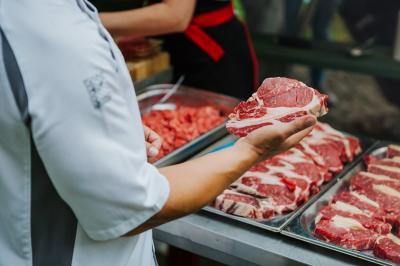
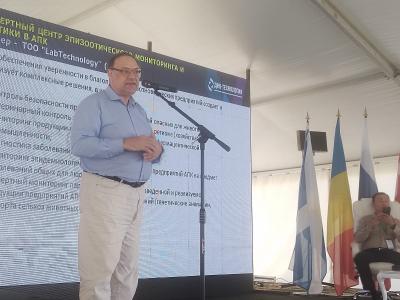

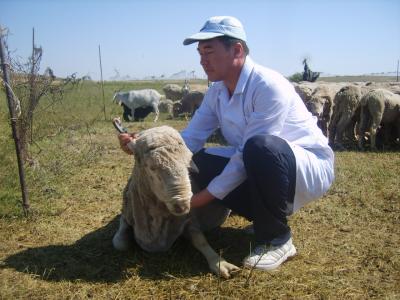
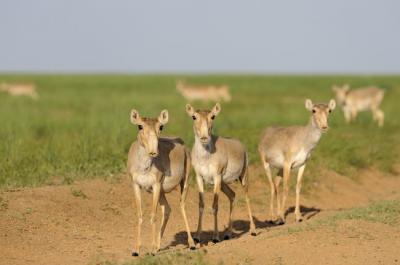

Обсуждение